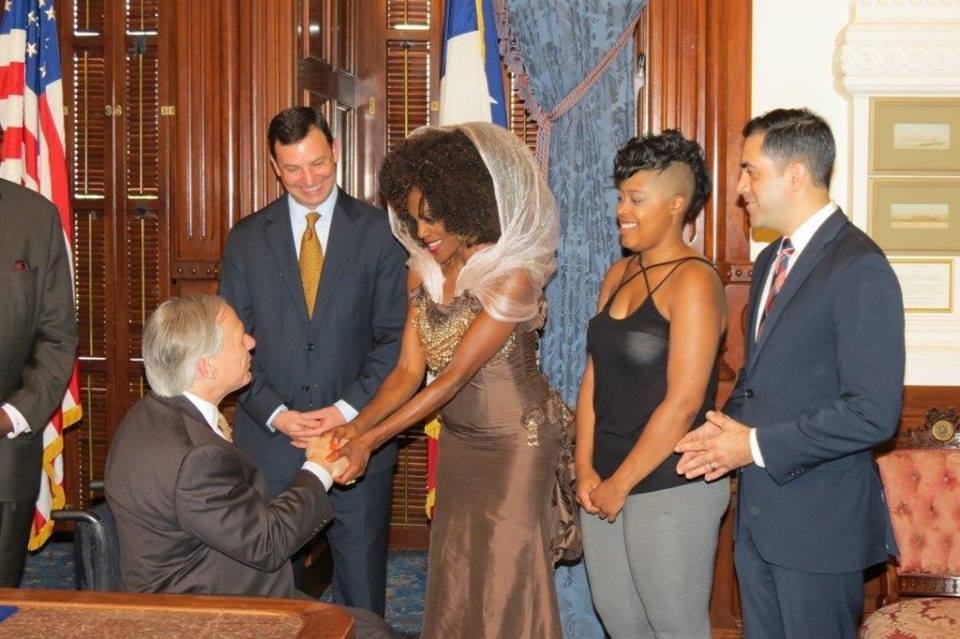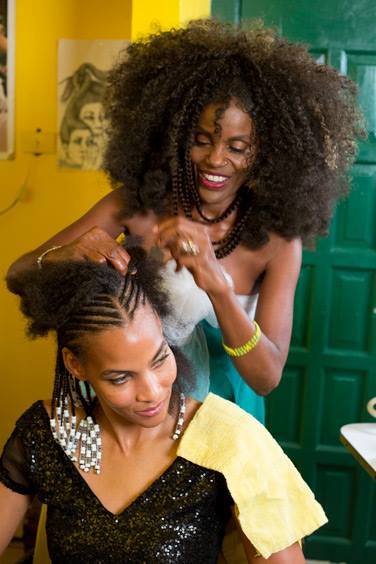“Isis Brantley, you’re under arrest for braiding hair. You’re going to jail.”
The year was 1997, two years after the state of Texas cited the natural hair advocate and expert ‘braidologist’ for doing hair in her home without having a cosmetology license. It was the single catalyst that resulted in 18 years of legal wrangling between Brantley and the state over whether or not she had the right to forego modern cosmetology regulations while practicing the ancient art of hairbraiding, an ancestral practice that no Texas beauty school taught.
“They carted me off like a common criminal,” Brantley stated recently by phone. The 57-year-old first learned to braid as a child and opened the Institute of Ancestral Braiding in 1981. “I was fined $600 and had a full-fledged trial. They [The Texas Commission of Licensing and Regulation] were trying to hold me to decide whether or not I was in violation of something.”
Despite the fact that Brantley taught and implemented the braiding styles to students without the use of cutting instruments or chemicals, the state imposed a requirement that all braiders earn an abbreviated 1,500 hour cosmetology license, despite the fact that no cosmetology school had a curriculum on how to braid. In 2007, Texas passed a law that required all hair braiders to earn 35 hours of braiding instruction and required instructors to only teach from an accredited cosmetology or barber college, which would’ve forced Brantley’s Braiding Institute to absorb thousands of dollars in costs to add equipment and space. Even braiders who earned the required 35 hours of instruction derived from Brantley’s existing template were still expected to shell out more money to attend cosmetology school before being permitted to work in a salon.
Eight years and hundreds of complaints later, Brantley said that the judge finally ruled in her favor, telling the state’s licensing commission that it was “illegal and unconstitutional” for them to prevent her from braiding as a livelihood in her own school. “[US District Judge Sam Sparks] told the state, ‘what she’s practicing [braids, twists and locks] is older than me and I’m 78 years old.’ It’s the cosmetology industry that has caused alopecia and serious balding for black women, stylists who held licenses and used harsh chemicals like sodium hydroxide [known as hair relaxer] on top of childrens’ heads that make their hair fall out, not braiders. Those demanding licensing never had an understanding of natural hair care or African hair because if they did they wouldn’t have used sodium hydroxide on it. African braiding is ancient and never had a license attached to it.”
 The legal victory is less about regulations and more about cultural empowerment and economic freedom, says Pamela Ferrell, an acclaimed natural hair expert, author and founder/owner of Cornrows & Co. Hair Salon in Washington DC. Ferrell helped Brantley in her legal fight after her 1997 arrest and stated by phone that licensing requirements in Texas and nationwide are about revenue, not consumer safety.
The legal victory is less about regulations and more about cultural empowerment and economic freedom, says Pamela Ferrell, an acclaimed natural hair expert, author and founder/owner of Cornrows & Co. Hair Salon in Washington DC. Ferrell helped Brantley in her legal fight after her 1997 arrest and stated by phone that licensing requirements in Texas and nationwide are about revenue, not consumer safety.
“The states make money by the students going to school, earning the license and then charging them to maintain that license to keep it current. When board members go to salons they’re looking for unlicensed activity, not to determine health hazards or skill. If it were, the chemicals used wouldn’t be available to everyone for purchase.”
“We worked with Isis when she was first arrested and our contention all along was that braiding is a culture, and the state cannot regulate culture,” says Ferrell. “With Isis and the American Hair Braiders Association, we fought the idea of them trying to co-opt an ancient practice into Cosmetology, which is 80 years old while hair-braiding is more than 5,000 years old. You can’t regulate what you don’t know, and what you don’t know you can’t teach. What we fought for and received was exemption since we [natural hair care providers] don’t want to be a part of cosmetology or barbering. Braiding is a cultural practice and that whole regulation argument is a smokescreen because people don’t value our freedom of choice.”
For more information on Isis’ upcoming Parade and Economic Liberation March in downtown Dallas on Sep. 12, click here.






